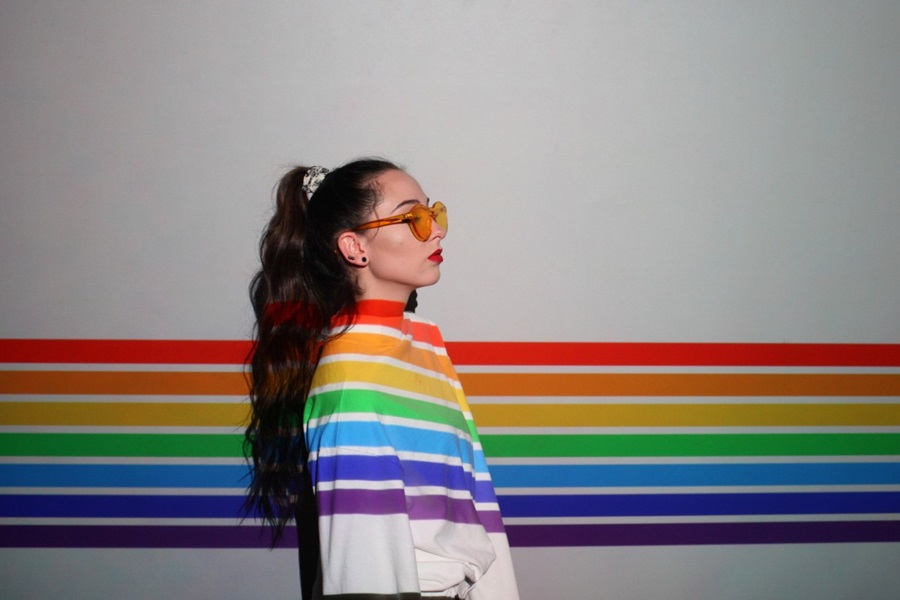The United Kingdom has experienced a generational shift in coming out. Millennial and Generation Z LGBTQI women are asserting their identity earlier than ever before according to LGBTQI Women’s Insight 2020, the biggest ever study focusing on the lives of LGBTQI women, from Diva and Kantar as part of the UK’s Lesbian Visibility Week.
Across the LGBTQI women community, 29% of women came out aged 18 or under, 52% came out over the age of 18. The remaining 19% had not come out or did not answer. For those aged 55+, only 4% came out before the age of 18. In comparison 58% of 16-24 y/o, came out before age 18, suggesting a real shift in today’s societal norms and acceptance. Over recent decades the average age for women and girls choosing to ‘come out’ has fallen consistently. Those aged 16-24 today have an average age of 13. For those aged 55+ they were on average 24 years old when they came out. The table below illustrates the trend.
Table 1: The generational shift in ‘coming out’ age.
|
Age group |
Average ‘coming out’ age |
|
16-24 |
13 |
|
25-34 |
17 |
|
35-44 |
19 |
|
45-55 |
22 |
|
55+ |
24 |
Despite a growing social acceptance of their sexual orientation, verbal and physical abuse of the LGBTQI women community remains disappointingly high. Over a third of LGBTQI women have been verbally or physically abused because of their sexual orientation. Among those with children, 36% claim to have experienced homophobia from other parents and 36% claim their children have been victims of homophobia due to their parents’ sexual orientation. Almost half of LGBTQI women avoid showing affection in public places with their partner. Other findings from The Diva Survey: LGBTQI Women’s Insight 2020 include:
- Work life: 3 in 4 respondents are open about their sexual orientation to most of their work colleagues, but only 1 in 3 16-24-year-old are likely to be ‘out’ with everyone in the workplace. This increases to 50% of those aged 25-34. 27% have been made to feel uncomfortable in the workplace. Only 28% of those felt empowered to report this to management or HR.
- Family life: 22% of the LGBTQI women surveyed have children, with an additional 26% stating they would like to have children in the future. Of those currently without children, 25-34 year olds are those most likely to say they would like to have children (46%), while 16-24 year olds are least likeliest (41%).
- Social life: There is an unfulfilled demand from LGBTQI women for events that cater to them and their interests. Only 21% of LGBTQI women attend LGBTQI events at least once a month, whilst 19% never attend these events. 45% claim that not enough events are aimed at women, while 41% claim LGBTQI events are male-dominated. Of those who attend LGBTQI events, 3 in 4 say that less than half of the events they have attended were aimed at women only. 74% of LGBTQI women want to see more interest-based events, while 46% want to see more networking events.
Linda Riley, Publisher of DIVA magazine, said: ”The inaugural Lesbian Visibility Week launches with the most extensive research carried out on LGBTQI women. The DIVA research in partnership with Kantar really highlights the challenges that LGBTQI women face; feeling invisible and unsupported in key areas of their lives. A standout point for me in the research was finding out that 36% of LGBTQI parents told us that their children had been targeted with homophobic abuse which highlights just how much we still need to do to achieve equality - not just for ourselves but for our children too. The research also shows us that 79% of LGBTQI women feel LGBTQI men have more visibility in public life, which affirms why the Visible Lesbian 100 is such an important initiative.”
Discussing the findings and the partnership with Diva, Caroline Frankum, CEO of Kantar’s Profiles Division added: “Kantar exists to help understand people and inspire growth, and the belief that inclusion and diversity is a business imperative sits at the core of everything we do. Our partnership with Diva has produced some incredible insights into the opportunities and challenges faced by LGBTQI women.” Ms Frankum was today recognised as a 2020 Business Women of the Year Awards Winner by CEO Today magazine. The recognition celebrates her leadership as a role model for Women in Tech and the C-suite, and for her work in championing inclusion and diversity in the Kantar workplace and beyond. This includes being the global Executive Sponsor and ally for the LGBTQI community within Kantar and supporting the development and launch of Kantar’s Award-winning Inclusion Index; a unique global benchmark for driving purposeful and profitable business growth by helping clients measure progress towards achieving better equality and more inclusive ways of working.
Sophia Papadopoulos, Business Analyst and Global Head of Pride@Kantar added: “This is an important piece of work to help understand and support women in the LGBTQI community in meaningful ways. We know that we have an important role to play in providing evidence that helps us all better understand the world we live in – and that includes shining a light on groups that are often underappreciated – in this case LGBTQI women.”
The Diva Study: LGBTQI Women’s Insight 2020 can be found here, with more detail here.
Notes to Editors
Kantar spoke to 1423 women; of which 60% identified as Lesbian, with a further 9% identifying as gay. An additional 18% of our respondents identified as other, with 5% identifying as asexual. 88% of our respondents identified as cisgender, with 7% identifying as gender nonbinary and 4% identifying as transgender. 84% of respondents lived in the UK at the time of research. The additional 16% were spread across 37 countries. The top 5 most-represented countries outside of the UK were USA, Canada, Australia, Ireland and Germany.


